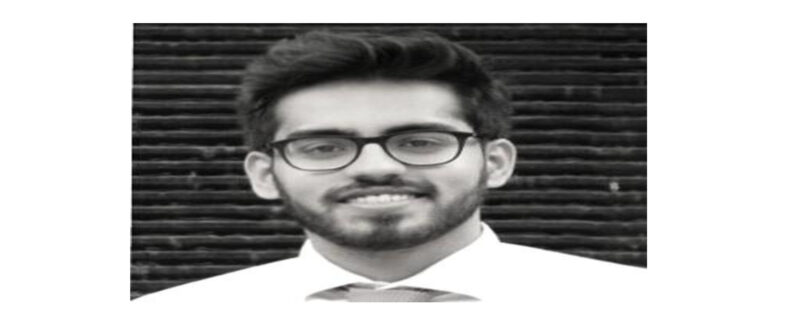About the Interviewee:
An alumnus of St. Xavier’s College Kolkata, Sudhir shares his journey to aspiring aspirants as to what it takes to become a qualified actuary at just 23!
Interview by: Shailja Bhandari & Samyak Zaveri
What motivated you to become an actuary?
Back in 2014, it was the first year of my college and there was much less awareness about the actuarial profession than it is right now, and I heard about it (actuarial science) from a few friends of mine. After going through the course content and the exam structure and the first few papers, I thought that I should give it a shot (being a big fan of Math!). My primary lookout was that whatever I study should interest me and essentially the entire course never failed to lose my interest.
“It is a funny story actually that in my first session my professor told me that I’m going to give you the problems, the formulas and actuarial tables and I still want YOU to find the solution. And what really intrigued me was that you do not really have to learn anything and just put your head into it. And that motivated me!
Is self-study enough or should aspirants seek help from Institutes?
It really depends on what you are pursuing it with. So, there are a lot of people who start their actuarial journey, like I did, during college and have ample amount of free time apart from college studies. Similarly, there are people who are in their work life and give these exams. But if you have time, a coaching centre would definitely help you and I am a firm believer that your core concepts, essentially your basics, should be rock solid.
“In your earlier order papers, you should take all the help that you can. As you go to the higher order papers, your own work and market experience will aid you in clearing them.”
How many papers did you clear before your first internship? How did you juggle between working and studying?
I think I was done with 5 papers and I did 2 internships in the final year (In summer and winter break). Also, I had to get some practical experience and develop my skill set and I had a one-year time span to do it. So, I started applying and I got an internship at Deloitte in the Risk Advisory Committee. And as far studies are concerned, as it was vacation time and the internship was after my Actuarial exams had ended (I had given the exams in the April session), juggling work and studies was not a hassle for me.
You will have to have a work-study balance once you graduate, so you should practice that in college via internships and it is worth investing your time, even if things get a little hectic.
 You were really involved in extra curricular, especially debates. How have they helped in your career?
You were really involved in extra curricular, especially debates. How have they helped in your career?
I did a lot of dramas when I was in class 9th and 10th and that really got me to love the stage and eventually it got me into debating. I have been a part of MUNs and the debating experience that I have had not only helped me in my professional journey but also in my holistic personality development – it improved my communication skills, people skills, and of course, it developed my oratory skills as well. And it is a lot of fun too!
Did you have a reason to specifically choose a reinsurance company over other types of insurance companies and non-traditional actuarial work altogether?
There is not really one specific company or type of company that I look for while looking for work since any type of company has a wide variety of roles. It ultimately boils down to the nature of the role. In terms of reinsurance companies, they are of a much larger scale than a life insurance company since they require more amount of capital. So, you will have multiple clients and have a presence all around the globe. This automatically opens up a lot of opportunities that a company can offer to you in future. Another thing with Swiss Re (the company that I am working with) is that they have almost the entire product cycle / value chain – Departments (for instance, Business Management and Risk Management) under their purview within Bangalore itself. This was the advantage that I felt working for a larger firm than a smaller-scale insurance company.
“So, in general, the perspective that an applicants should have while applying should be the exact role that he / she will be doing and the team that he / she will be joining.”
Where do you see yourself in the next 5 years?
So far my one focus had been to qualify. Now I can focus much more on the kind of work that I am doing, and I want to learn as much as I can.
“The journey of learning doesn’t end just because I’ve stopped studying for the examinations”
The focus on how I learn has now shifted from examinations to work. I like things that are technically challenging and keep me on my toes mentally and give me an opportunity to learn.
So that is where I am headed.
Can Actuaries be Data Scientists too?
The traditional role of an actuary has been in an insurance company because the actuarial profession is all about valuing future financial risks and putting monetary value on uncertainties. And the biggest industry that does that is the Insurance industry. Having said that, now with the evolution of technology, there are a lot of industries which have amped up their risk appetite and started taking new risks. And wherever there is risk, an actuary can contribute significantly. And one such area is Data Science.A part of what you learn in Data Science is what you learn in Actuarial Science and vice-versa. So, there is an overlap between the two and which is also increasing exponentially as more and more companies are adopting the data mentality and algorithm-based decision making.
If you were not an Actuary, what would you be?
I would probably be a civil servant. I have been on this actuarial journey for so long that I have forgotten what my ambitions were initially. I think I enjoyed drama a lot – so something to do with it, maybe! And I write a lot – so an author too!
Reference:
https://www.linkedin.com/in/sudhir-maheshwari-fia-273a66115






